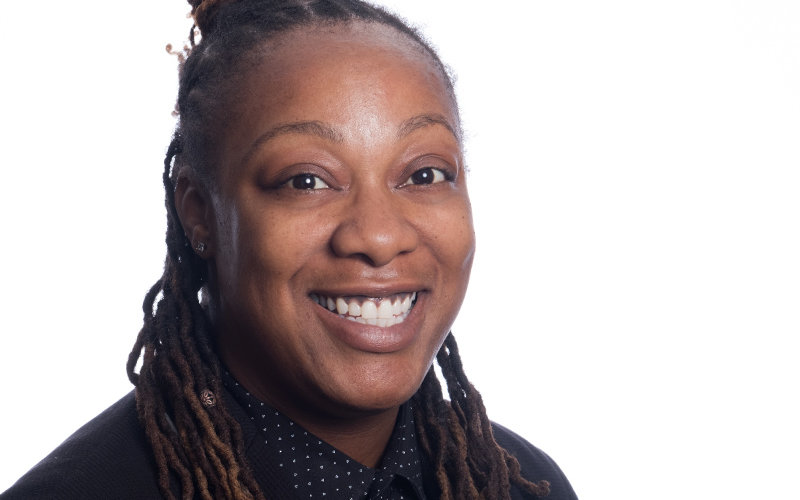
Nursing has been near and dear to Sharrica Miller’s heart since she was in high school and, through vocational training, serving as a certified nursing assistant.
“It was a natural fit. I considered pre-medicine (when going to college), but nursing and working with patients was closer to my heart,” says the assistant professor of nursing, who has served as a clinical nurse, primarily in pediatrics, at UCLA Mattel Children’s Hospital, CHOC, Miller Children’s Hospital in Long Beach and Premier Nursing Registry.
Miller holds a master of science in nursing from Cal State Long Beach and a doctor of philosophy in nursing from UCLA. She previously served as an assistant professor at the American University of Health Sciences.
What inspired you to go into teaching nursing?
I took part in a mentorship program during my undergraduate studies (the Student Nursing Immersion Program at Howard University, where she earned her bachelor of science in nursing). It was my first taste of teaching and I knew that was for me. I worked four years saving to go back to school with the goal of teaching others.
What are your research interests?
As a doctoral student at UCLA, I grew familiar with research and developed my interest in adolescent/young adults and their health and well-being.
My focus has been on transitional-age foster youth, typically age 18 to 26 years of age, when they transition into adulthood — how they utilize health services, how often they use emergency care. My study involves comparing transitional foster care youth and young adults who hadn’t been in foster care.
What I’ve found is that these young people, because of their situation of very often going between multiple homes, are uneducated about the health care system and what they need to do to get the care they need. At 18, they are out of the foster care system and may be without health cards, birth certificates, medical records — and have no clue how to get them. So, they use more emergency services and often wait until they are sicker to seek treatment. They also have more issues with mental health issues.
As their ‘parents’ we all need to look at this situation and to understand and help with their needs. That’s why I specifically chose to teach here at Cal State Fullerton. I definitely love our Guardian Scholars program (a campus scholarship program for college-bound students exiting the foster care system). I have signed up to serve as a mentor and am very excited to be involved in this effort.
What do you hope students get from your classes/teaching?
I hope that my students learn that their impact on health care and the world extends beyond the bedside. I try always to add that into my classes — how they should think not just about that first job. To not limit their career and to see the impact that they can make in their field.
What do you see as a misconception about nursing?
I spoke about this at my graduation from UCLA: Why would anyone get a PhD in nursing? The public doesn’t know the importance, the need for nurses to extend their education further and to explore other avenues in the field of health care beyond the traditional care we provide.